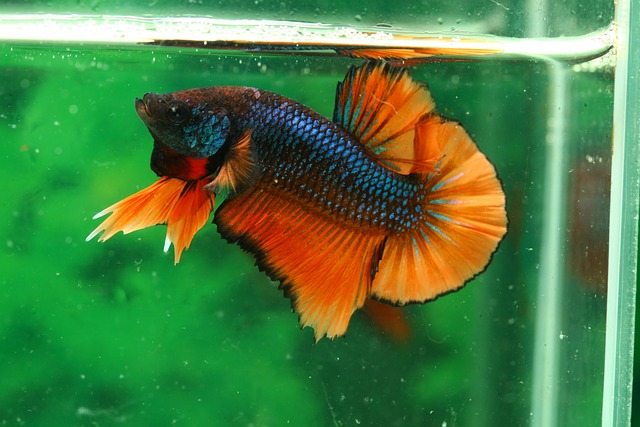Betta fish, also known as Siamese fighting fish, are popular pets known for their vibrant colors and graceful fins. As an owner, it can be concerning to see your betta fish consistently staying at the top of the tank, seemingly gasping for air or behaving unusually. In this article, we will explore some common reasons why betta fish exhibit this behavior and discuss what you can do to ensure the well-being of your fish.
Oxygen Levels:
One possible reason why your betta fish stays at the top of the tank is low oxygen levels in the water. Unlike other fish, bettas possess a unique organ called a labyrinth organ, which allows them to breathe atmospheric air directly from the water’s surface. When oxygen levels are inadequate, bettas may instinctively swim to the top of the tank to access oxygen-rich air. Ensure that your tank has proper aeration and consider using an air pump or a filter with an air stone to improve oxygenation.
Water Quality:
Poor water quality can also cause betta fish to stay at the top of the tank. Ammonia and nitrite buildup, resulting from fish waste and decaying matter, can be toxic to bettas. Regularly test the water parameters using an aquarium test kit and maintain appropriate levels of ammonia, nitrite, and nitrate. Perform routine water changes to keep the water clean and provide a healthy environment for your betta.
Temperature:
Temperature fluctuations can significantly impact the behavior of betta fish. Extreme temperatures, either too cold or too hot, can cause stress and prompt your betta to seek refuge near the water’s surface. Ideally, bettas thrive in water temperatures between 76 to 82 degrees Fahrenheit (24 to 28 degrees Celsius). Use a reliable aquarium heater and a thermometer to monitor and maintain the optimal temperature range.
Stress and Aggression:
Betta fish are known for their territorial nature. If you have multiple bettas in a community tank or if your betta is housed with other fish species that display aggressive behavior, your betta may feel stressed or threatened. This can lead to them staying at the top of the tank as a defensive posture. Ensure that your betta has sufficient space and consider providing hiding spots with plants or decorations to create a sense of security.
Illness and Disease:
When a betta fish is unwell, it may exhibit abnormal behavior, including staying at the top of the tank. Various health issues, such as fin rot, swim bladder disease, or infections, can affect bettas and cause discomfort. Look out for other symptoms like loss of appetite, lethargy, or changes in appearance. If you suspect that your betta is sick, consult a veterinarian with experience in treating fish to receive appropriate diagnosis and treatment.
Overfeeding or Improper Diet:
Overfeeding your betta fish or providing an imbalanced diet can lead to digestive problems, constipation, and buoyancy issues. If your betta is experiencing discomfort, it may float near the water’s surface. Ensure that you are feeding your betta an appropriate amount of high-quality betta pellets or flakes and supplementing their diet with occasional treats like freeze-dried or live foods.

